Aromatherapy in the Management of Psychiatric Disorders: A Natural Approach to Mental Health
Maintaining good mental health is crucial in today’s fast-paced and stressful world. Aromatherapy, a therapeutic practice that utilizes essential oils derived from plants, offers a promising avenue for managing psychiatric disorders. This article explores the benefits, specific applications, safety considerations, and integration of aromatherapy with conventional treatments.
Table of content
-
Benefits of Aromatherapy in Psychiatric Disorders
-
Essential Oils for Psychiatric Disorders
-
Mechanisms of Action
-
Specific Applications in Psychiatric Disorders
-
Safety Considerations and Precautions
-
Methods of Application
-
Research and Evidence
-
Integration with Conventional Treatments
Benefits of Aromatherapy in Psychiatric Disorders
Aromatherapy has gained recognition for its potential to enhance mental health and emotional well-being. Here are some of the benefits it offers in the management of psychiatric disorders:
- Stress reduction: Certain essential oils, such as lavender and bergamot, have calming properties that can help reduce stress levels and promote relaxation.
- Anxiety management: Inhalation or topical application of essential oils like chamomile and ylang-ylang can aid in anxiety management by inducing a sense of calm and reducing nervousness.
- Depression alleviation: Citrus oils, such as lemon and orange, possess uplifting properties that may help alleviate symptoms of depression and enhance mood.
- Mood enhancement: Aromatherapy can positively impact mood through the use of oils like frankincense and rosemary, which have been associated with improved emotional well-being.
- Sleep improvement: Essential oils like lavender and sandalwood have sedative properties that can aid in promoting better sleep quality and relieving insomnia.
Essential Oils for Psychiatric Disorders
Numerous essential oils have shown potential in managing psychiatric disorders. Here are some commonly used oils and their associated benefits:
- Lavender oil: Known for its calming and relaxing effects, lavender oil is often used to alleviate anxiety and promote better sleep.
- Bergamot oil: With its uplifting and refreshing aroma, bergamot oil can aid in reducing stress, anxiety, and symptoms of depression.
- Chamomile oil: Chamomile oil possesses soothing properties that can help relieve anxiety and irritability and promote relaxation.
- Frankincense oil: This oil has been traditionally used for its grounding and balancing properties, making it beneficial in managing stress and anxiety.
- Ylang-ylang oil: Ylang-ylang oil is known for its ability to promote relaxation, reduce stress, and uplift mood.
- Peppermint oil: Peppermint oil may aid in improving focus, attention, and relieving symptoms of mental fatigue.
- Rosemary oil: With its stimulating properties, rosemary oil can enhance focus, memory, and mental clarity.
- Lemon oil: The refreshing scent of lemon oil can help uplift mood, promote positivity, and alleviate symptoms of depression.
- Sandalwood oil: Sandalwood oil is known for its grounding and calming effects, making it beneficial for stress reduction and relaxation.
Mechanisms of Action
Aromatherapy’s effectiveness in managing psychiatric disorders is deeply rooted in its intricate mechanisms of action. Understanding how essential oils interact with the body and mind provides insights into their therapeutic potential:
-
Inhalation and Olfaction: Aromatherapy primarily operates through inhalation and olfaction. When essential oils are inhaled, their volatile molecules travel through the nasal passages and stimulate olfactory receptors. These receptors are directly linked to the limbic system, the brain’s emotional center. As a result, specific scents can trigger emotional and psychological responses, influencing mood, stress levels, and overall mental state.
-
Effects on the Limbic System: Aromatherapy’s impact on mental well-being is closely linked to the limbic system, a complex brain network responsible for processing emotions and memories. When we inhale essential oil aromas, they directly engage with the limbic system, specifically:
-
Amygdala: This emotional center evaluates the emotional significance of scents, triggering responses like relaxation or excitement. Aromatherapy can influence the amygdala, promoting emotional balance.
-
Hippocampus: The hippocampus is connected to memory formation and can create associations between scents and positive experiences. Aromatherapy leverages this to evoke soothing memories and emotions.
-
Neurotransmitters: Aromas can stimulate neurotransmitter release, including serotonin and dopamine. These chemicals impact mood and stress levels, enhancing the therapeutic effects of aromatherapy.
By targeting the limbic system, aromatherapy taps into our emotional and memory pathways, offering a natural approach to managing psychiatric disorders and fostering mental wellness.
-
-
Neurotransmitter Modulation: “Neurotransmitter modulation” refers to the process by which the activity and balance of neurotransmitters in the brain are altered or regulated. Neurotransmitters are chemical messengers that transmit signals between nerve cells (neurons) and play a crucial role in various functions, including mood regulation, cognition, behavior, and physiological processes.
Modulating neurotransmitters involves influencing their production, release, reuptake (reabsorption), and interactions with receptors. This modulation can lead to changes in the overall activity and availability of neurotransmitters in the brain, which can impact a person’s emotional and mental state.
In the context of aromatherapy, certain essential oils have been found to affect neurotransmitter systems. For example, some oils may promote the release of serotonin, often called the “feel-good” neurotransmitter, associated with mood elevation and a sense of well-being. Other oils might influence the production or activity of neurotransmitters like dopamine or norepinephrine, which are also involved in mood regulation and motivation.
Neurotransmitter modulation through aromatherapy can contribute to the management of psychiatric disorders by promoting a more balanced and stable neurotransmitter profile. This, in turn, may help alleviate symptoms of anxiety, depression, and stress, ultimately supporting better mental health.
Please note that while aromatherapy’s effects on neurotransmitters are being studied, the field is complex, and individual responses can vary. It’s important to consult with healthcare professionals before making any significant changes to a treatment plan.
-
Physiological Effects: Aromatherapy can also produce physiological effects relevant to psychiatric disorders. Inhaling specific scents can trigger changes in heart rate, blood pressure, and respiratory patterns. These changes are linked to the autonomic nervous system’s response, further influencing stress levels and emotional well-being.
-
Mind-Body Connection: The mind-body connection is integral to aromatherapy’s impact. As the olfactory system interacts with the brain, it sends signals that affect emotions and influence other bodily systems. This interconnectedness underscores the holistic nature of aromatherapy, which addresses both psychological and physiological aspects of mental health.
-
Placebo and Conditioning Effects: Aromatherapy’s effects can also be partially attributed to placebo and conditioning effects. If individuals associate certain scents with relaxation or positive experiences, their perception of well-being may improve when exposed to those scents. This psychological conditioning contributes to the overall therapeutic benefit of aromatherapy.
-
Personalized Responses: It’s important to note that individual responses to aromatherapy can vary. Factors such as personal experiences, cultural background, and even genetic makeup can influence how individuals perceive and respond to specific scents. This variability underscores the need for personalized approaches to aromatherapy in psychiatric disorder management.
In summary, the multifaceted mechanisms of action of aromatherapy involve the intricate interplay between scent, emotions, neurotransmitters, and physiological responses. By targeting these mechanisms, aromatherapy offers a unique and holistic approach to supporting mental health and well-being, making it a valuable complement to conventional psychiatric treatments.

Foto di Guillaume Bourdages
Specific Applications in Psychiatric Disorders
Aromatherapy can be utilized in the management of various psychiatric disorders, including:
- Generalized anxiety disorder (GAD): Essential oils like lavender and chamomile can help reduce anxiety symptoms and promote relaxation.
- Panic disorder: Aromatherapy with bergamot and ylang-ylang oils may aid in managing panic attacks and reducing anxiety levels.
- Major depressive disorder (MDD): Citrus oils, such as lemon and orange, can be used to uplift mood and alleviate symptoms of depression.
- Post-traumatic stress disorder (PTSD): Aromatherapy, particularly with frankincense and lavender oils, may help reduce stress and promote emotional healing.
- Bipolar disorder: Certain essential oils, like bergamot and lavender, can help balance mood swings and support emotional stability.
- Attention deficit hyperactivity disorder (ADHD): Essential oils like peppermint and rosemary may assist in improving focus and attention.
- Insomnia: Lavender and sandalwood oils are commonly used to promote relaxation and improve sleep quality.
Safety Considerations and Precautions
While aromatherapy is generally safe, it is essential to consider the following precautions:
- Essential oil dilution: Essential oils are highly concentrated and should be diluted before topical application to avoid skin irritation or sensitization.
- Patch testing: Before using a new essential oil, perform a patch test on a small skin area to check for any adverse reactions or allergies.
- Allergic reactions: Individuals with known allergies or sensitivities should exercise caution and consult a healthcare professional before using essential oils.
- Interaction with medications: Some essential oils may interact with certain medications, so it is important to consult with a healthcare provider, especially if you are taking prescription medications.
Methods of Application
Aromatherapy can be applied through various methods:
- Inhalation: Inhalation of essential oil vapors using diffusers, inhalers, or steam inhalation methods allows for direct interaction with the olfactory system.
- Topical application: Diluted essential oils can be applied to the skin through massage, bath soaks, or compresses for absorption and localized effects.
- Diffusion: Essential oil diffusers disperse the aroma into the air, creating a pleasant and therapeutic environment.
- Massage therapy: Incorporating aromatherapy into massage sessions enhances relaxation, reduces stress, and promotes overall well-being.
Research and Evidence
Scientific research on aromatherapy’s effectiveness in managing psychiatric disorders is growing. Clinical studies, meta-analyses, and systematic reviews have shown promising results, indicating the potential of aromatherapy as a complementary approach to conventional treatments. Additionally, anecdotal evidence and patient testimonials further support its use in enhancing mental health.
Integration with Conventional Treatments
Aromatherapy can be integrated with conventional treatments in a collaborative and complementary manner. It is crucial to consult with healthcare professionals, such as psychiatrists or aromatherapists, to ensure safe and effective integration. Aromatherapy should not replace prescribed medications or therapy but can be used as a supportive approach to enhance mental well-being.
Conclusion
Aromatherapy offers a natural and holistic approach to managing psychiatric disorders. Essential oils’ benefits in reducing stress, managing anxiety and depression, enhancing mood, and improving sleep make aromatherapy a promising adjunctive therapy. With proper knowledge, precautions, and guidance from healthcare professionals, individuals can explore the potential of aromatherapy in their mental health journey. As research continues to unfold, aromatherapy holds the potential to play a significant role in the management of psychiatric disorders, supporting overall well-being and emotional balance.
References:
Here are a few scientific references related to the benefits of aromatherapy in the management of psychiatric disorders:
- Sayorwan, W., Siripornpanich, V., Piriyapunyaporn, T., Hongratanaworakit, T., Kotchabhakdi, N., & Ruangrungsi, N. (2013). The effects of lavender oil inhalation on emotional states, autonomic nervous system, and brain electrical activity. Journal of the Medical Association of Thailand, 96(8), 995-1000.
- Perry, N. S., Houghton, P. J., Sampson, J., Theobald, A. E., Hart, S., Lis-Balchin, M., & Hoult, J. R. (2000). In-vitro activity of S. lavandulifolia (Spanish sage) relevant to the treatment of Alzheimer’s disease. Journal of Pharmacy and Pharmacology, 52(7), 895-902.
- Kasper, S., Gastpar, M., Müller, W. E., Volz, H. P., Möller, H. J., Dienel, A., & Schlafke, S. (2010). Silexan, an orally administered Lavandula oil preparation, is effective in the treatment of ‘subsyndromal’ anxiety disorder: a randomized, double-blind, placebo-controlled trial. International Clinical Psychopharmacology, 25(5), 277-287.
- Lee, Y. L., Wu, Y., Tsang, H. W., Leung, A. Y., & Cheung, W. M. (2011). A systematic review on the anxiolytic effects of aromatherapy in people with anxiety symptoms. Journal of Alternative and Complementary Medicine, 17(2), 101-108.
- Hongratanaworakit, T. (2009). Aroma-therapeutic effects of massage blended essential oils on humans. Natural Product Communications, 4(1), 35-42.
- Sánchez-Vidaña, D. I., Ngai, S. P., He, W. Y., Chow, J. K., Lau, B. W., & Tsang, H. W. (2017). The effect of lavender oil on stress, bispectral index values, and needle insertion pain in volunteers. Journal of Alternative and Complementary Medicine, 23(11), 858-865.
A vast bibliography is present in the article:
Nicolette Perry and Elaine Perry (2006). Aromatherapy in the Management of Psychiatric Disorders – Clinical and Neuropharmacological Perspectives. Medicinal Plant Research Centre, Universities of Newcastle and Northumbria, Newcastle upon Tyne, UK, 278-280
Please note that this is just a small selection of references, and there is a wide range of scientific literature available on this topic. It is always recommended to conduct further research and explore additional studies for a comprehensive understanding of the subject.

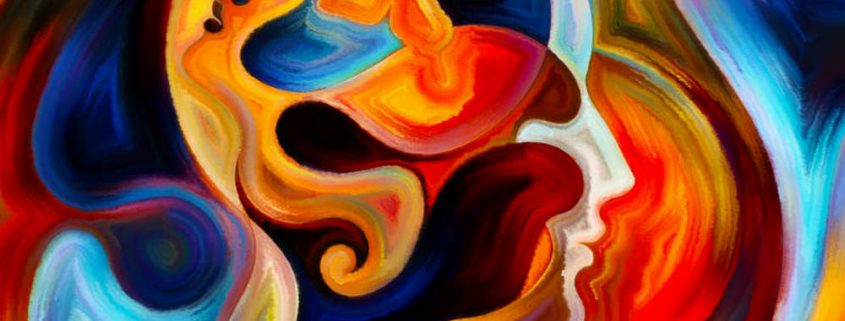
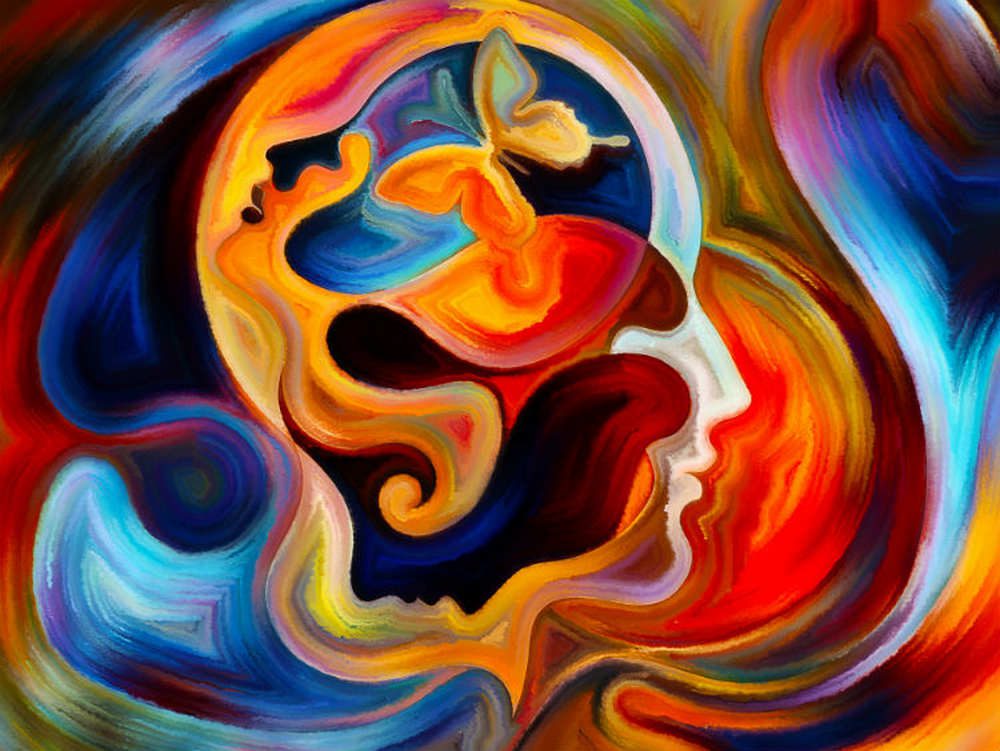

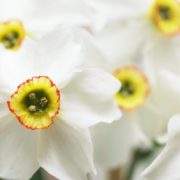
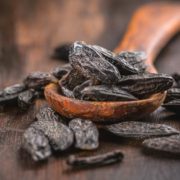
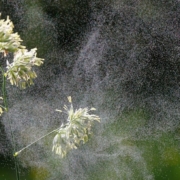

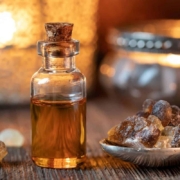

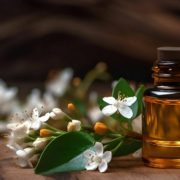













Leave a Reply
Want to join the discussion?Feel free to contribute!